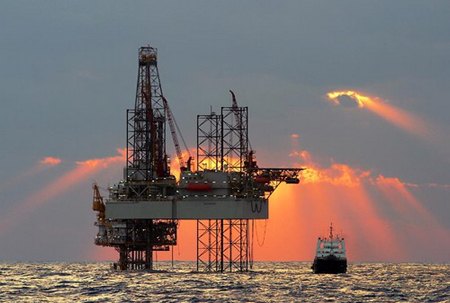Gas Hits $3.28 Per Gallon; Profits Revealed
Who profits most when you pay $3.28 for a gallon of gasoline? Taking their cues from the mainstream media, many people blame oil speculators for driving-up the prices. According to CNNMoney, they don't actually get a cut of the price. Some traders profit by correctly predicting the change in prices, but others balance that by losing money. Meanwhile, only about seven to 10 cents of the retail price goes to gas stations; which make more money selling legal drugs (caffeinated beverages, artery-clogging, obesity-reinforcing snack foods; cigarettes, lottery tickets, etc.). Federal taxes account for 18 cents; state taxes average 22 cents/gallon. Shipping and storing fuel costs between 23 and 26 cents/gallon. Refiners like Valero, Sunoco or Frontier charge about 24 cents/gallon, but get squeezed when oil prices rise quickly. That leaves crude oil suppliers like BP, Chevron, ExxonMobil, Petroleos Mexicanos, Petróleos de Venezuela and Saudi Aramco. They take the lion's share: roughly $2.04 per gallon. And now that gas is averaging $3.285 a gallon, they make even more. But then, it's one of those risk reward deals. And these calculations don't include the cost of U.S. military efforts in oil-producing regions. Or an eventual federal bailout when one of the D3 goes belly-up. Or a lot of other things, really.
More by Donal Fagan


































Comments
Join the conversation
Pch101: It’s hard for bubbles to emerge if demand is consistent and prices are at equilibrium. IOW speculation thrives with inconsistent demand. Suddenly people decide that oil, or tulips, or Beanies, are more desirable (or less). Speculators profit from the changing prices. So unless there is collusion between the producers and the traders, your speculation premium is ultimately a demand premium, whether the demand is rational or not. In the case of Beanies, the speculators controlled supply, and created a crazy bubble market for something of little intrinsic value. For oil traders to do the same, they'd have to be working with OPEC.
PCH, It seems we are therefore not militarily impotent, by your definition. Building a country is NOT a military goal. Keeping order in a country is NOT a military goal. The military very effectively took out the regime in power. That IS a military goal. Now all you have to do is define what our goal in Iraq is (any commentary on why so many people cannot get on board with that would be appreciated). We can then, perhaps, figure out whether the perception of US weakness is accurate, why it is so, and what to do about it.